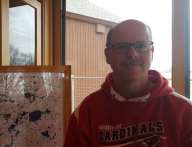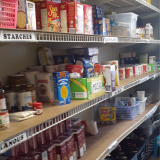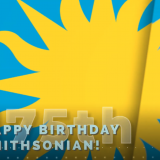The Need for Wetlands Restoration--Scott Glup
Story Narrative:
"Hello, my name is Scott Glup and I work for the Fish and Wildlife Service. I have been working for the Fish and Wildlife Service for 31 years. Over the course of that 31 years, I have worked on six natural wildlife refuges in five different states. I have worked in Kansas, Nebraska, South Dakota, North Dakota, and now in Minnesota. I have been in Minnesota for about 13 years. I live in Willmar. You can’t find anybody that doesn’t say that don’t want clean and abundant water. Everybody wants that. That is why I am here. Water really is the key to all of this. It is not just wildlife habitat but I view it as our future. We need it to sustain life, not just for humans but wildlife and all of creation and not only do we need water, but we need high quality water.
We need good, clean water. Many people are aware of the dead zone in the Gulf of Mexico, the hypoxic zone. Much of that area—which in some years can be 8,000 square miles, where most life in the ocean dies—is coming from southern Minnesota and Iowa and other farm states because of the nitrates that are going down the Mississippi River because of the land use. One of the best ways to curtail that is by restoring wetlands because wetlands help to clean the water; they help to store the water so that we are not flooding our downstream neighbors. They help to do all of those kinds of things.
The question is, is it possible to have a form of agriculture that can coexist with wetlands? We can have wetlands and sustainable wetland resources and sustainable agricultural resources. I am no agronomist, and I have great faith in the capacity of humans. I think not only is it possible, but it is a must. We have to figure that out. Much of Minnesota is some of the most fertile soil in the world, and as you know, we have a large human population that needs to be fed. And we know that we are going to have to farm to feed this population. But I do believe that it is not too late. I wouldn’t be doing what I do if I felt that it was too late."
This story was collected as part of a collaborative effort to record the state of American lakes, rivers, and waterways as well an attempt to uncover what water means to Americans. Listen to other stories recorded by the Minnesota Humanities Center for the Stories from Main Street project, an initiative created by the Smithsonian Institution Traveling Exhibition Service for its traveling exhibition "Water/Ways."
Asset ID #6682
Media Files:
-
Scott Glup of Minnesota
-
Hear Scott's story.




